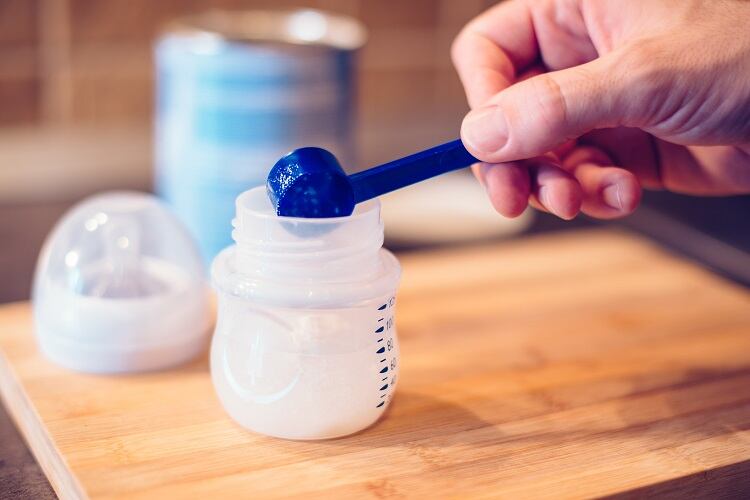Current regulations do not effectively prevent potentially misleading claims that may carry health risks for a vulnerable population, according to Robert Boyle, a specialist in child allergy at Imperial College London, and colleagues.
Despite improvements in infant formula over its 150-year history, it is still associated with health risks for mother and infant compared with breastfeeding, they wrote in the BMJ.
Manufacturers, they said, try to limit these risks through changes to formula composition, which are often accompanied by health or nutrition claims that aid product differentiation or increase market value. But academics and regulators have raised concerns that these claims are often unfounded and may undermine efforts to support breastfeeding.
The authors called for greater regulation on marketing claims for infant formula in order to prevent ‘the harms associated with infant formula claims while ensuring formula fed infants can benefit from improvements in formula composition’.
The authors claimed there was often weak scientific evidence underpinning claims made to consumers and healthcare professionals for infant formula around the world.
And while the World Health Organisation's code of practice recommends against promoting infant formula to the public and states that information for healthcare professionals should be "scientific and factual" they argued that this is not legally binding, and few countries have fully enacted its recommendations into law.
"This failure of regulation and associated potential for harm suggests the need for a new approach," they wrote.
They acknowledged that restrictions on the use of health and nutrition claims for infant formula should be balanced by adequate incentives for manufacturers to develop new or improved products.
They proposed that any changes to the composition of infant formula should require pre-market approval, and the bar for scientific substantiation needs to be significantly higher than that currently used by manufacturers to justify their claims.
And when a change in infant formula composition has been shown to have a beneficial health effect, that change should be added to the Codex international food standards so that all formula fed infants can benefit.
Using the new ingredient as a health claim before assessment and inclusion in the mandatory Codex standards should be banned, they said, to "avoid misleading consumers and undermining breastfeeding."
"Infants and their carers are not being adequately protected from adverse consequences of claims about infant formula," they concluded.
"Global action is needed to break the current cycle of weak scientific evidence and unreliable claims and move to a new era where carers of infants are given accurate information about infant formula products in a manner that does not undermine breastfeeding."
Nestle, which was last year accused of a failure to act on criticisms of its baby milk formula products, told FoodNavigator that its infant formula milk, SMA HA, was strictly regulated.
A spokesperson said: “All of our communications to both consumers and healthcare professionals are strictly regulated. We have industry leading standards derived from the WHO Code which shape the way we communicate about infant feeding. The claims about SMA HA have been approved by both the European Food Standards Agency (EFSA) and the Department of Health and Social Care.”
A spokesperson from the British Specialist Nutrition Association told FoodNavigator: “BSNA members believe all parents should feel respected and supported in their decision on how to feed their baby. Breastfeeding is the best way to feed an infant and is important for both mother and baby’s health and wellbeing.
However, when parents are unable to or choose not to breastfed, the only food recognised by the WHO as a suitable and safe alternative to breastmilk is a scientifically developed infant formula. The composition, labelling and marketing of formula milks is strictly regulated in the UK to ensure they are safe and nutrition and health claims can only be made if they are compliant with the strict legislation."
Source
Health and nutrition claims for infant formula are poorly substantiated and potentially harmful
BMJ 2020
doi: https://doi.org/10.1136/bmj.m875 (Published 06 May 2020)




